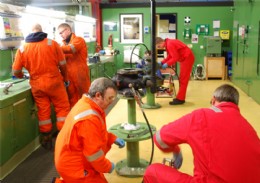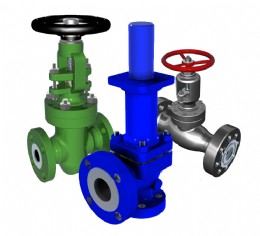A Proactive and Innovative Approach to Hydrocarbon Release Reduction



Step Change has challenged the Oil and Gas industry to achieve a 50% reduction in minor, significant and major hydrocarbon releases by the end of 2013.
Score Training can help you achieve this by implementing a Hydrocarbon Containment Management ProgrammeTM, which reduces the need for reactive response, by moving towards a proactive maintenance and management of assets.
Hydrocarbon Containment Management ProgrammeTM (HCMPTM)
Statistics from Step Change route cause analysis reveal that 76% of all HCR’s come from inadequate maintenance and management of valves, pipe systems and instrument connections.
Our HCMPTM is a Multi faceted and unique blended learning approach to reducing HCR’s through theory and practical training courses which help your teams achieve their leak reduction targets through improved awareness, prevention, identification and response behaviours.
Valve Types & The Principles of Selection
23% of all HCR’s are associated with valve leakage and failure. A better understanding of valve types, functions, potential failure modes and their appropriate use will assist you in minimising failures & leaks.
Non-Invasive Maintenance Training
Non-Invasive Maintenance illustrates how established routines can help to maintain equipment in good condition. Proactively planning routine maintenance can help prevent critical failures, expensive unplanned shut downs and production losses.
Leak Detection Training
The MIDAS Meter® is a non-invasive condition monitoring device for detecting and measuring both through valve losses and leakage. Training in the use of this equipment will give you the ability to instantly identify and quantify leak sources in your process plant and pipework allowing you to engage in condition based maintenance and move towards a more predictive maintenance approach.
Plug Valve Maintenance Training
The inadequate maintenance of plug valves is a major cause of HCR’s in the offshore industry. Understanding of specialised inspection and maintenance routines and processes, as well as the use of specialist equipment, will help reduce operational failures and emissions.
Making and Breaking Joints Training
Flanged connections and joints are a major source of emissions to atmosphere. By training in the correct disassembly and assembly routines these can be easily avoided. As well as gaining an understanding of the make up of different connection types, you will greatly reduce HCR’s and improve the overall safety of plant and equipment.
Valve Stem Compression Packing Training
Poor or improper installation, maintenance, adjustment and replacement of seal components can lead to major hydrocarbon releases. By understanding the design of gland seals and implementing proper maintenance routines and seal assembly procedures, the potential for HCR’s will be greatly reduced.
Compression Fitting Training
Tubing connections make up 21% of HCR’s on oil field equipment. Through understanding of fitting design, proper assembly techniques and ongoing inspection, potential leaks and tube fractures and leaks can be avoided.
Score Group has 30 years of experience in delivering market-leading services in the valve industry giving you confidence that Score Training will deliver excellent service in all our training courses.
Our courses are delivered in a production free area, so your delegates experience the best possible training intervention in a safe and controlled environment.
All courses are delivered with a blend of a theory-based classroom sessions, along with hands on practical sessions in our dedicated training facility (VTCC).
Score Europe Ltd
Tel: 01779 480000
Website: www.score-group.com

| Telephone: | 01779 480000 |
| Email: | Europeafrica@score-group.com |
| Website: | www.score-group.com |
| More information on the Score BVAA Member Directory Page |
Search related valve / actuator articles: ScoreIssue 21Fugitive Emissions







-web.jpg)





